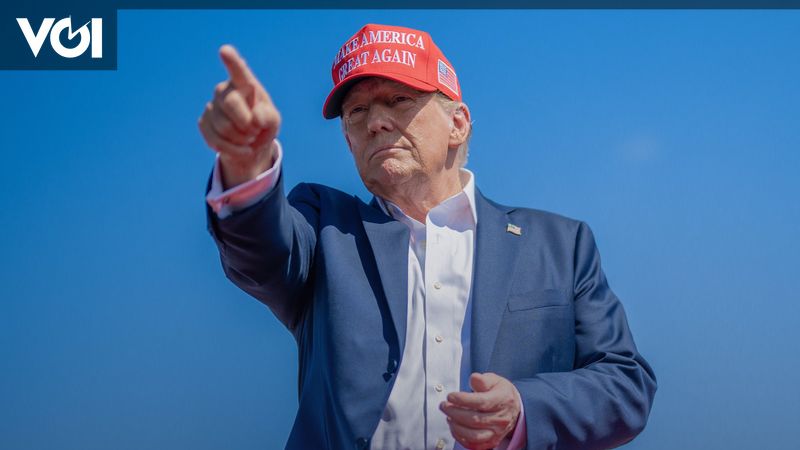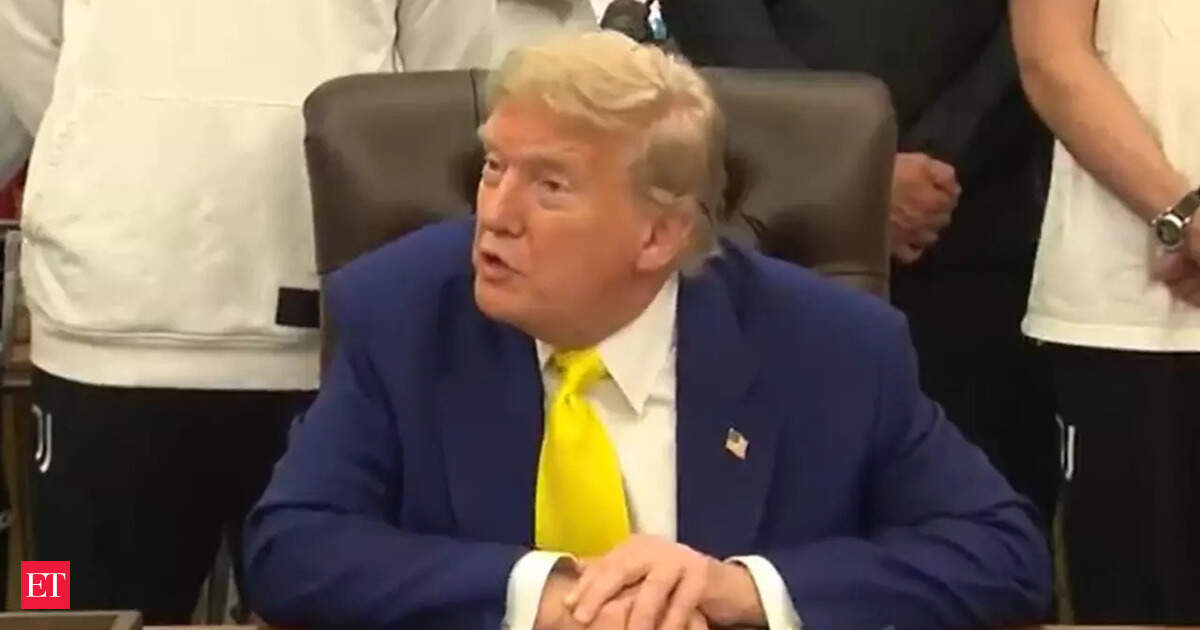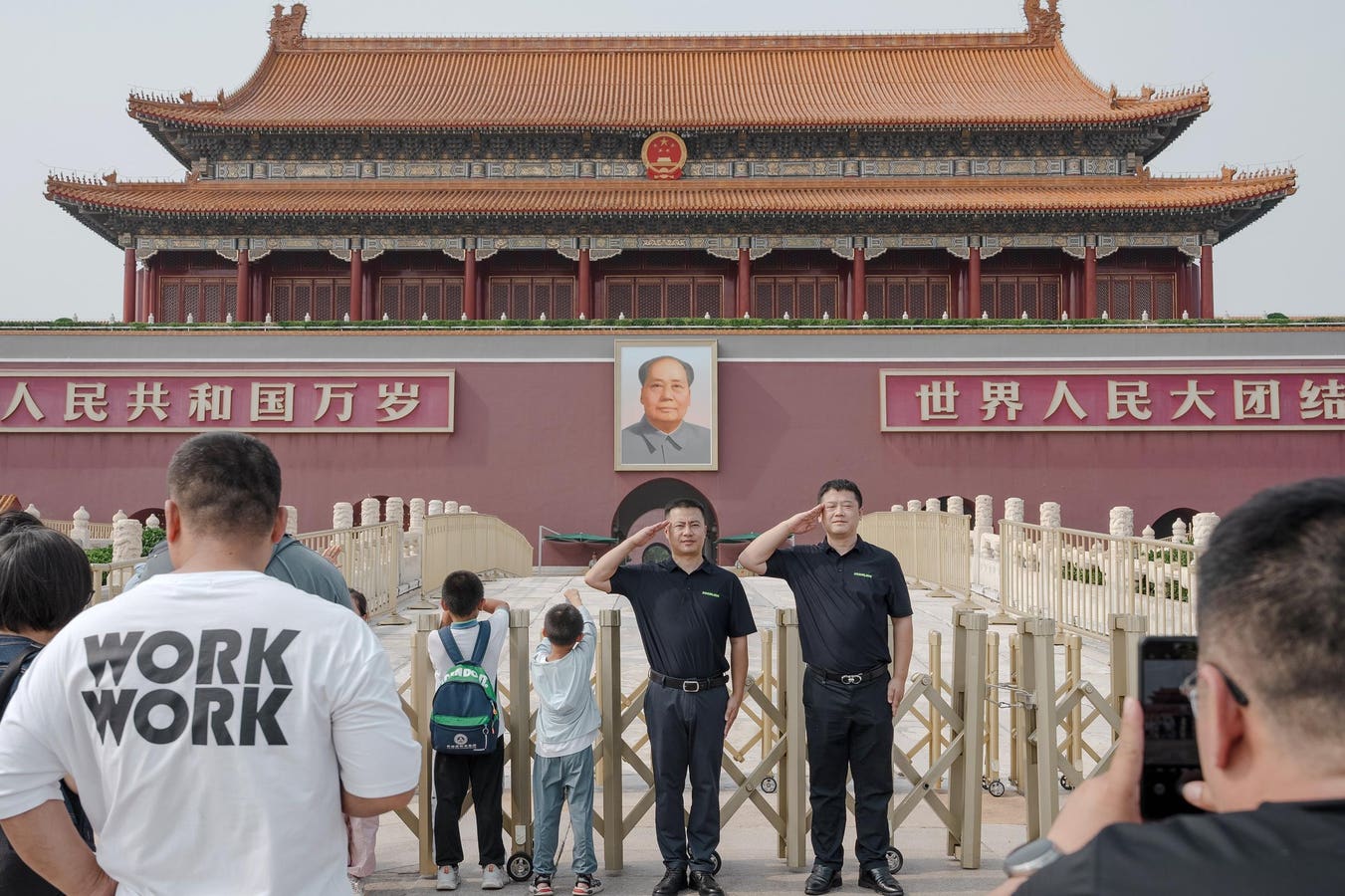JAKARTA – The administration of the President of the United States Donald Trump provides exceptions to high import rates for smartphones, computers, and several other electronic items that are mostly imported from China. This decision is a breath of fresh air for big technology companies like Apple that rely heavily on imported products.
China said it was evaluating the impact of this decision. In a statement on Sunday, April 13, China’s Ministry of Commerce called the move a small move of the United States to correct their one-sided practices that were wrong in implementing resipprocal rates.
The tiger’s neck can only be removed by the person who tied it up, the ministry said. They also called for the US to take a big step by canceling all the rates imposed.
In notification to the senders of goods on Friday night, the US Customs and Border Protection Agency (CBP) issued a list of tariff codes that were exempt from import taxes, retroactive since 00:01 EDT (11:01 WIB) on April 5.
The list covers 20 product categories, including an 8471 wide code for all computers, laptops, hard disks, and automated data processing devices. This includes semiconductor devices, equipment, memory chips, and flat screen panels.
Although the notification did not explain the reasons behind the policy, this decision clearly provides relief for major technology companies such as Apple, Dell Technologies, and many other importers.
The move also waives certain electronic products from Trump’s baseline’ rate of 10% for goods from most countries other than China, thereby reducing semiconductor import fees from Taiwan and India’s iPhone.
When asked on Saturday about the reasons behind this exception and plans for the semiconductor sector, Trump replied, “I will give the answer on Monday. We will be very specific on Monday… this country is making a lot of money, a lot of money.”
For imports from China, the exception of technology products only applies to Trump’s resipprocal rates, which this week rose to 125%, according to a White House official. However, a 20% tariff over all Chinese imports called Trump related to the fentanyl crisis remains in effect.
The official also said that Trump would launch a new trade investigation based on national security reasons against the semiconductor sector, which could trigger new rates.
Analysts from Wedbush Securities, Dan Ives, called this announcement the most encouraging news this weekend.
There are still uncertainties and volatility in negotiations with China… But big tech companies like Apple, Nvidia, Microsoft, and the tech industry can generally breathe a sigh of relief until Monday, “Ives said in his industry records.
In retaliation, China raised import rates on US goods to 125% on Friday, responding to Trump’s decision to raise the rate of Chinese goods again, which further heats up trade wars that could disrupt global supply chains.
Earlier on Wednesday, Trump had announced tariff exemptions for dozens of countries but simultaneously raised rates on imported goods from China to an effective 145%.
Many CEOs of technology companies are now supporting Trump in his second term. They attended his inauguration on January 20 and celebrated together. Apple CEO Tim Cook even held a party before the inauguration and visited Trump several times at his home in Florida.
White House spokesman Krypto Leavitt said Trump had confirmed that the US could no longer rely on China to produce essential technologies such as semiconductors, chips, smartphones and laptops.
However, he also said that at Trump’s direction, major companies such as Apple and chipmakers such as Nvidia and Taiwan Semiconductor were rushing to move their production to the United States as soon as possible.
This exception shows an increased awareness in the Trump administration of the impact of painful rates for American consumers who are tired of facing inflation.
Even at a lower rate of tariffs, which is 54%, analysts expect high-end iPhone prices to jump from 1,599 to US$2,300. At the level of 125%, economists estimate US-China trade could actually stall.
Smartphones are the largest US imported goods from China by 2024 with a total of $41.7 billion, followed by laptops made in China worth $33.1 billion, according to data from the US Census Bureau.
Even Apple recently chartered a special cargo flight to transport 600 tonnes of iPhones equivalent to about 1.5 million units from India to the US after increasing production there to avoid the impact of Trump’s rates.
Trump’s election last year focused on promises to lower prices. However, he also insisted that tariffs were needed to change the world trade order, which he said was unfair to America.
However, these tariff measures sparked fears of a recession in the US and were criticized by even fellow Republicans, who fear they will lose control of Congress in next year’s part-time elections.
Trump told reporters on Friday he had no objection to the high tariff on China and said he had good relations with President Xi Jinping. He believes there will be positive things that arise from this trade conflict.
Trump’s tariff measures caused turmoil in the financial market. US stocks closed the week full of volatility with rising, but the price of gold as a secure asset soared to record highs and yields of 10-year US government bonds experienced the biggest weekly spike since 2001, accompanied by a weakening dollar value showing a loss of confidence in US economic stability.
The English, Chinese, Japanese, Arabic, and French versions are automatically generated by the AI. So there may still be inaccuracies in translating, please always see Indonesian as our main language.
(system supported by DigitalSiber.id)


